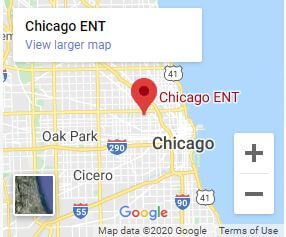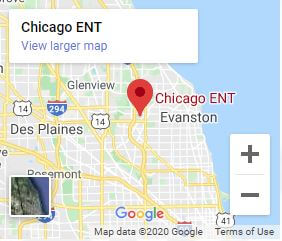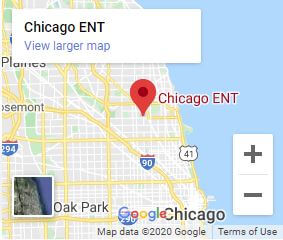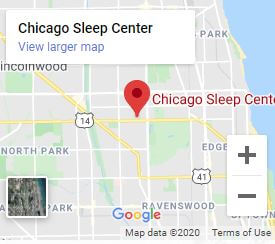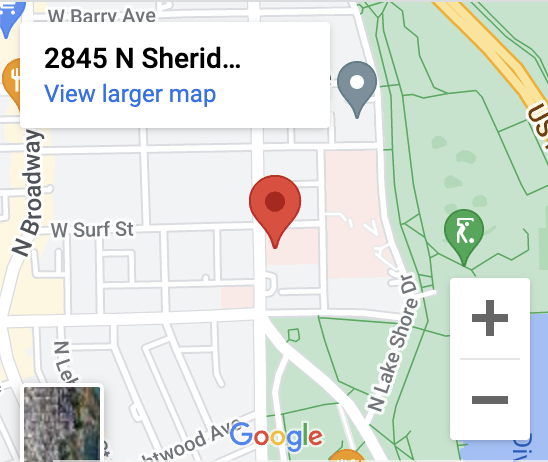
When you suffer from allergies, the symptoms you experience are the result of your body’s immune system reacting to allergens in the environment. When you breathe in these allergens, your immune system forms antibodies that trigger a chemical response causing symptoms like stuffy nose, runny nose, sneezing, or itchy eyes. These familiar allergy symptoms are actually signs of your immune system overreacting to the allergen.
“Basically, an allergen is a protein particle from the environment that triggers a response from your immune system,” explains Dr. Ayesha Siddiqi, an allergist at Chicago ENT. “Allergens are can be inhaled, ingested (think peanuts), or even just touched, and a reaction may occur. There are several ways an allergen can be introduced into your system.”
People with allergies can be sensitive to many different allergens. Some common seasonal allergens include trees, grass, and ragweed pollen. Common perennial (year-round) allergens include house dust mite and dander from pets. Taking note of when and where you experience allergy symptoms can help you and your doctor figure out what you are allergic to.
Your doctor may determine what is causing your allergic reaction by listening to your allergy experiences and performing skin and/or blood tests. You may also be asked about how much your symptoms bother you and how well you can manage them. Together, the test results and your allergy experiences may help your doctor identify the allergen that triggers your symptoms.
The most common type of allergens are inhalants, which typically present as seasonal and perennial allergies. Some common seasonal allergens include trees, grass, and ragweed pollen. Common perennial (year-round) allergens include house dust mites, mold, and dander from pets.
Taking note of when and where you experience allergy symptoms can help you and your doctor figure out what you are allergic too. Your doctor may determine what is causing your allergic reaction by listening to your allergy experiences and performing skin and/or blood tests. She or he may also ask you about how much your symptoms bother you and how well you can manage them. Together, the test results and your allergy experiences may help your doctor identify the allergen that triggers your symptoms.
Just as different people react differently to different allergens, they react differently to treatment, too. Once your doctor knows what allergens cause your symptoms, she or he will be able to help you plan the best approach for treating your symptoms or even the underlying cause of those symptoms. The first step is to try to avoid the allergens that are giving you trouble. But because this isn’t always easy to do, you may consider treatment options. Generally, these fall into 2 categories:
Symptom-relieving medication: During an allergic reaction, your immune system releases chemicals such as histamine that are responsible for the symptoms you experience. Many medications delivered in the form of pills, eye drops, and nasal sprays are designed to help block those chemicals, helping to relieve your symptoms. These are available over the counter and by prescription.
Immunotherapy: Immunotherapy is designed to treat the underlying cause of your symptoms by giving you small amounts of the allergen over time. Immunotherapy may work with your immune system to help change how your body reacts to allergens. It may help gradually build a tolerance to specific allergens. Immunotherapy was traditionally given as “allergy shots” but a sublingual tablet is now available.
Allergen immunotherapy is different from the administration of common symptomatic medications (antihistamines and nose sprays). It is a long-term treatment (3-5 years) that desensitizes your immune system to the cause of your allergies. It is the only treatment that addresses the underlying cause of allergy symptoms. It works gradually and can eventually reduce or eliminate your symptoms and the need for symptomatic medications.
Each care plan is individualized, and immunotherapy must be supervised by a doctor. Dr. Siddiqi stresses the fact that allergy management can often require a complex, ongoing management plan.
“It is important that the doctor and the patient work together to manage allergies, especially when using immunotherapy,” she said. “Because we are actually introducing the body to a known allergen, it is extremely important that we monitor these patients closely to avoid adverse reactions.”
A Note about Dust Mites
Did you know that house dust mites are detectable in 80% of homes in America and are the number 1 cause of year-round allergic symptoms? House dust mites live in warm, humid environments, making carpets, bedding, and upholstery some of their favorite spots. They are nearly impossible to get rid of or avoid, making it a tough allergen to deal with. If you suffer from year-round symptoms and antihistamines and nose sprays are not working, you may be a candidate for immunotherapy.
To make an allergy appointment at Chicago ENT, call (773) 296-5500.











